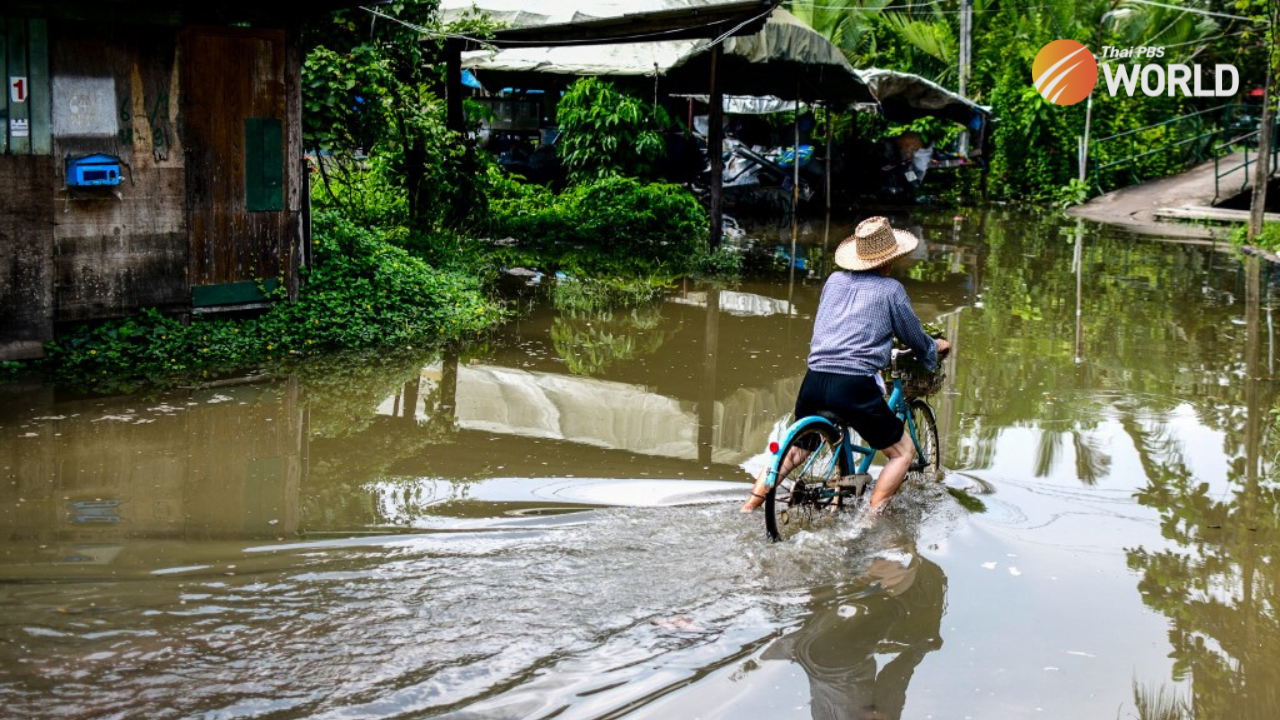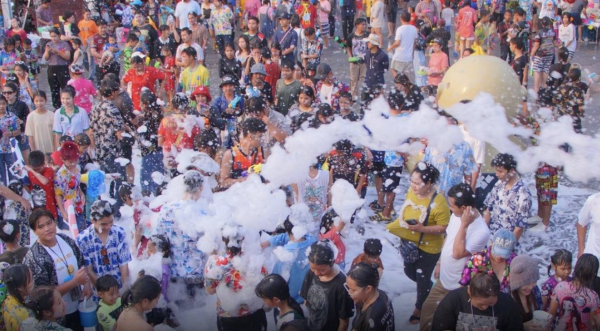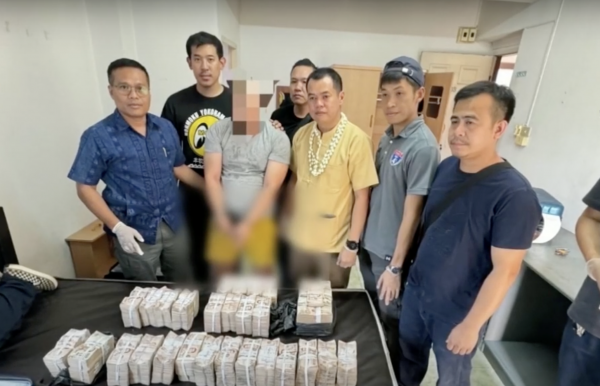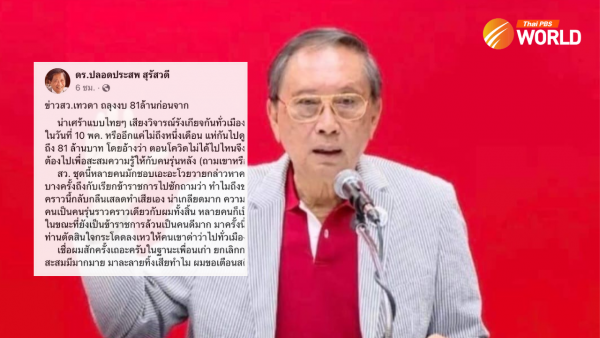Citizens’ groups want APEC leaders to prioritize people’s problems

Civic groups are demanding that leaders of the Asia Pacific Economic Cooperation (APEC), who will meet in Bangkok in November, address the problems faced by society at the root, rather than focusing only on the interests of the business sector.
Non-governmental and civic organizations across the country are planning to hold meetings and workshops in the middle of November, parallel to the APEC Summit, to discuss and synchronize issues from all concerned sectors, they said.
Senior officials, ministers, and leaders of 21 economies in Asia and the Pacific, as well as special invitees, will gather in the Thai capital from November 14-19 to promote economic liberalization, trade, investment, innovation, digitalization, gender, and environment-related issues.
The government of Prime Minister Prayut Chan-o-cha is spending 3.2 billion baht to organize a series of APEC meetings since last November, and would deploy at least 15,000 security personnel to provide safety for the summit and related meetings.
As part of the summit’s theme, “Open. Connect. Balance.”, host Thailand will push the Bio-Circular-Green (BCG) economy model, which the government has adopted as a part of the post-pandemic national recovery strategy, as a key agenda at the APEC meetings. Thai PBS World has learnt that senior officials are working on a standalone statement for the leaders’ consideration to support the BCG as an economic approach for achieving inclusive, balanced, and sustainable recovery post-COVID-19.
BCG not a panacea
The BCG economic model was promoted by the government recently not only for recovery after the pandemic, but also for long-term resilient economic growth and environmental and climate objectives.
The model focuses on applying science, technology and innovation to turn Thailand’s strengths in biological diversity into an economic competitive advantage. It highlights four strategic sectors: agriculture and food; wellness and medicine; energy, material and biochemicals; as well as tourism and creative economy.
“The BCG is a means to commercialize environmental problems and climate change,” said environmentalist Wanun Permpibul of Climate Watch Thailand. “It is a business opportunity, but who would talk about its negative impact and on how to protect vulnerable people and community rights.”
“Climate change and environmental issues have been discussed at many global forums, including the APEC in Thailand, but the main objective is to seek ways for big corporations to make profit, Wanun told a recent webinar on “APEC-ASEAN-G20: Where are the people?”
Environmental management and dealing with climate change requires huge capital and high technology, hence only governments and big corporates can afford them, Wanun said, noting that new technology and digitalization sometimes causes a negative impact on the normal lives of people.
“Digitalizing the agriculture sector is scary,” she said. “It is an instrument for big corporations to take information from farmers for their marketing purposes.
“If BCG really matters to the APEC leaders, they should also discuss how to help ordinary people, especially the poor, easily access renewable energy,” Wanun said.
Plenty of climate change and environment-related issues should be discussed at the APEC Summit for the benefit of the people including food sovereign—right of the people to have food security— community rights to utilize land and forest.
Chamnong Nuphan of P-Move said at the same webinar that an international forum such as APEC rarely gave opportunities to address the problems of ordinary people.
P-Move, a people’s organization, is joining upcoming people’s forums to address many issues such as the basic rights of the people to access infrastructure and facilities as well as land rights.
The group opposes the cabinet resolution of October 25, which allows wealthy foreigners who invest more than 40 million baht to own one rai of land for their residence, he said. Offering such a privilege to foreigners would widen the gap between the rich and the poor, because the price of land would skyrocket, as a result the poor would be unable to buy land, he warned.
“We will definitely address some non-economic issues, such as human rights and democratization at the people’s forum and propose it to the leaders for consideration,” Chamnong said.
Former labour union leader Sawit Kaewwan said that APEC leaders should pay attention to the impact of technology and innovation on workers. Artificial intelligence and robots would replace humans in production lines and thus create unemployment and poverty, he warned.
APEC offers no room for people
Unlike ASEAN and G20, APEC has no formal channel for ordinary people and non-governmental organizations to communicate with the leaders. Informal people’s gatherings and perhaps street demonstrations would be effective tools to speak out, according to speakers at the webinar.
While ordinary people have no room to sit together with the leaders, the APEC Business Advisory Council is the private-sector arm of the grouping to advise leaders and other APEC officials on issues of interest to businesses. The council will host the APEC CEO summit from November 16-18in Bangkok and Prime Minister Prayut is one of the keynote speakers at the business forum.
In comparison with APEC, ASEAN offers some representation to citizens, although the relationship is far from ideal. The ASEAN People Forum (APF) is a formal platform for people in Southeast Asia to raise their issues and meet with the region’s leaders during the summit. The ASEAN annual summit will be held from November 10-13 in Phnom Penh. The APF would be organized at a Phnom Penh hotel a week before the summit of the leaders and would address the Myanmar crisis, human rights violations in the region, militarism, authoritarianism and defending of civic space.
Despite having such a formal forum, people in the region are struggling to raise their issues and problems with the leaders. “Sometimes ASEAN leaders don’t want to meet us because they don’t like some of our representatives who might be dissidents at home,” said Suntaree Saeng-ging of Informal Worker Network, a longtime key figure in APF.
“This year, we are struggling to have a place for the forum as many hotels in Phnom Penh are not comfortable with our topics and the presence among us of some Myanmar dissidents,” she said.
Laddawan Tantivitayapitak, Thailand’s representative to the APF, said the main objective of the APF this year is an expansion of “civic space”, meaning widening roles and presence of ordinary people in the public sphere, protecting and defending them from the threat of militarism and authoritarianism.
“We also want a safe zone for ordinary people to exercise freedom of expression to address their own or public problems such as human rights violations and democratization,” she said.
The G20 summit, which precedes the APEC event and will be held on November 15-16 in Bali, has Civil 20 (C20) as a formal engagement for the people to ensure that leaders of the group listen to not just the government and business sector, but also the demands of civil society.
The common objective is to protect the environment and promote social and economic development and human rights. Meetings and workshops organized by C20 and a people’s caravan in October will gather issues and problems from the people of Indonesia and members of G20.
By Thai PBS World’s Regional Desk






